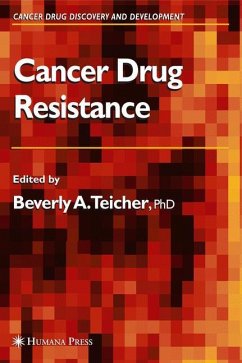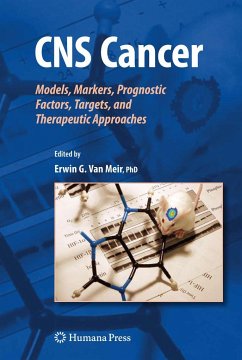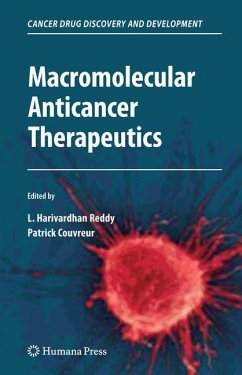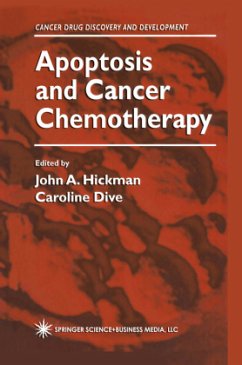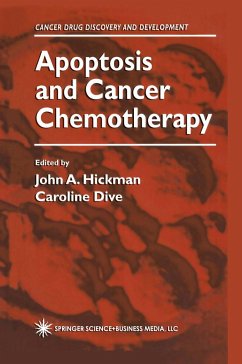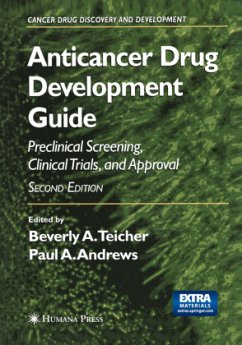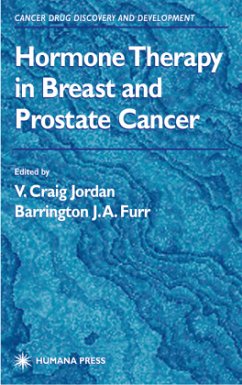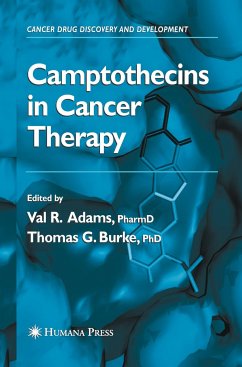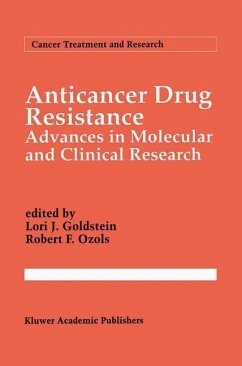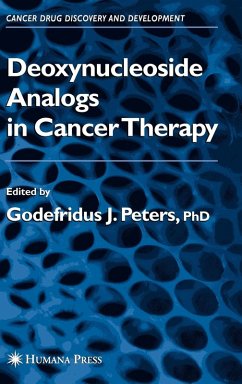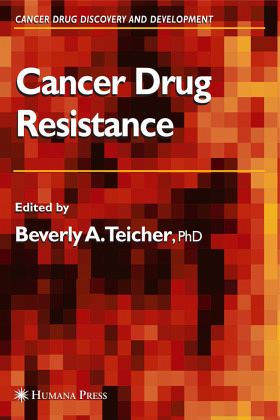
Cancer Drug Resistance
Versandkostenfrei!
Versandfertig in 6-10 Tagen
167,99 €
inkl. MwSt.

PAYBACK Punkte
84 °P sammeln!
Leading experts summarize and synthesize the latest discoveries concerning the changes that occur in tumor cells as they develop resistance to anticancer drugs, and suggest new approaches to preventing and overcoming it. The authors review physiological resistance based upon tumor architecture, cellular resistance based on drug transport, epigenetic changes that neutralize or bypass drug cytotoxicity, and genetic changes that alter drug target molecules by decreasing or eliminating drug binding and efficacy. Highlights include new insights into resistance to antiangiogenic therapies, oncogenes...
Leading experts summarize and synthesize the latest discoveries concerning the changes that occur in tumor cells as they develop resistance to anticancer drugs, and suggest new approaches to preventing and overcoming it. The authors review physiological resistance based upon tumor architecture, cellular resistance based on drug transport, epigenetic changes that neutralize or bypass drug cytotoxicity, and genetic changes that alter drug target molecules by decreasing or eliminating drug binding and efficacy. Highlights include new insights into resistance to antiangiogenic therapies, oncogenes and tumor suppressor genes in therapeutic resistance, cancer stem cells, and the development of more effective therapies. There are also new findings on tumor immune escape mechanisms, gene amplification in drug resistance, the molecular determinants of multidrug resistance, and resistance to taxanes and Herceptin. As genomic techniques gradually reveal the ability of malignant cells to respond to chemical and biological insults with remarkable flexibility of phenotype, it becomes clear that much remains to be done to control and eliminate such cells. In Cancer Drug Resistance, leading scientists from the best academic institutions and industrial laboratories summarize and synthesize the latest discoveries concerning the changes that occur in tumor cells as they develop resistance to a wide variety of anticancer therapeutics, as well as suggest new approaches to the biology of drug resistance that may afford new therapeutic opportunities. The authors review physiological resistance based tumor architecture, cellular resistance based on drug transport, epigenetic changes that neutralize or bypass drug cytotoxicity, and genetic changes that alter drug target molecules by decreasing or eliminating drug binding and efficacy. Highlights include new insights into resistance to antiangiogenic therapies, oncogenes and tumor suppressor genes in therapeutic resistance, cancerstem cells, and the development of more effective therapies. There are also new findings on tumor immune escape mechanisms, gene amplification in drug resistance, the molecular determinants of multidrug resistance, and resistance to taxanes and Herceptin®.
Authoritative and insightful, Cancer Drug Resistance offers basic and clinical investigators a state-of-the-art synthesis of the many faceted research now available on the biology and genetics of tumor resistance, as well as exciting new approaches to its prevention and eradication.
Authoritative and insightful, Cancer Drug Resistance offers basic and clinical investigators a state-of-the-art synthesis of the many faceted research now available on the biology and genetics of tumor resistance, as well as exciting new approaches to its prevention and eradication.



